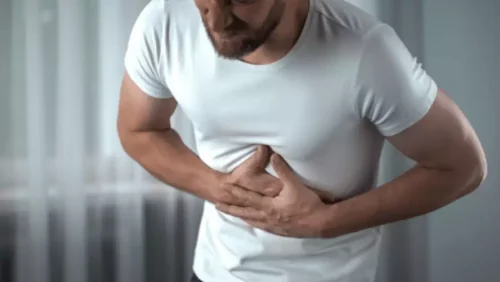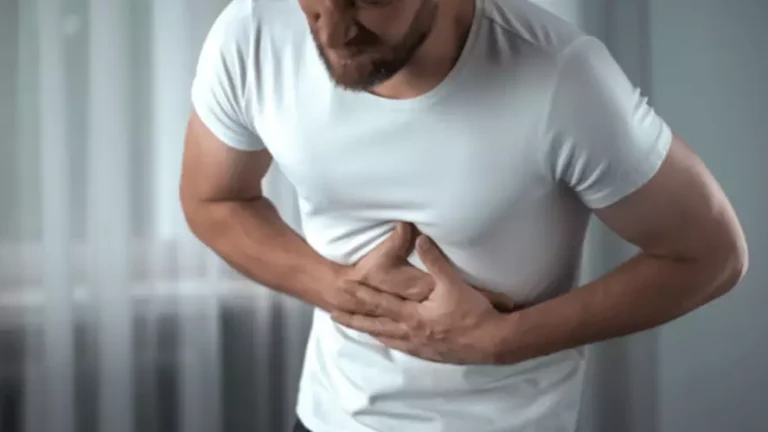
Professional help provides important tools like therapy, medication, and support systems, which improve recovery outcomes. Seeking help is particularly necessary is marijuana addictive for individuals with severe dependence or co-occurring mental health issues, where self-recovery does not address underlying factors effectively. Marijuana addiction treatment takes a few weeks for outpatient care to several months for more intensive inpatient programs, according to a study by Connor, J.P. For such individuals, inpatient care is more appropriate with its structured and immersive environment. Yes, outpatient treatment is effective for marijuana addiction, particularly for individuals with mild to moderate severity of dependence.
How To Help Someone Else Stop Smoking Weed
Its addiction results in physical effects like impaired memory and coordination, as well as mental health issues such as anxiety and depression. According to research by Kapłan et al. titled “Modern Methods of Treating Marijuana Addiction,” published in the Journal of Education, Health and Sport (2023), chronic use impacts cognitive and emotional functions. Treatment programs offer specialized approaches such as holistic wellness integration, structured support systems, and physical rehabilitation protocols, tailored to meet diverse recovery needs and circumstances. The effects of marijuana addiction include physical and mental health issues, such as heightened cardiovascular risks, compromised respiratory health, gastrointestinal disturbances, and cognitive impairments.
Cognitive Behavioral Therapy

Join 40,000+ People Who Receive Our Newsletter Get valuable resources on addiction, recovery, wellness, and our treatments delivered directly to your inbox. Developing healthy hobbies and activities that reduce the likelihood of relapse can also be helpful. Exercise, mindfulness practices, nutrition, volunteering, and creative outlets can all assist in the recovery process. Marijuana addiction can lead to a noticeable decline in performance at work, school, or home due to prioritizing drug use over responsibilities.
- Symptoms start within hours after stopping and last up to two weeks, depending on usage patterns.
- Treatment drugs for marijuana addiction are less common than for other substances, but some options include medications to manage withdrawal symptoms or co-occurring conditions such as anxiety or depression.
- Yes, you can overdose on marijuana, though fatal overdoses are rare or recorded, as given by the U.S.
- Patients participate in regular one-on-one counseling sessions with licensed therapists.
Key details about Oakland Family Services – Rochester Hills
Alcohol is considered more physically addictive, while marijuana addiction tends to be psychological. Among marijuana users, 42% of those who had used the drug in the past month communicated daily or near-daily use, in comparison to 11% of alcohol users who consumed alcohol at the same frequency. In total, 62 million Americans—about 20% of the U.S. population aged 12 and older—reported using marijuana at least once in the past year, underscoring its increasing prevalence. These trends in cannabis and alcohol consumption in the United States over the past 40 years were examined in the National Survey on Drug Use and Health, published in the journal Addiction.
- Despite the prevalent notion that marijuana is entirely safe or free of any addictive potential, there is certainly evidence to suggest otherwise.
- According to the CDC, approximately 1 in 10 marijuana users become addicted, with the risk increasing to 1 in 6 for users starting before age 18.
- While alcohol and opioids are known for their high potential for severe dependence and life-threatening withdrawal symptoms, marijuana addiction manifests more subtly, with psychological dependence playing a more significant role.
- If you or someone you know has become addicted to marijuana, it’s important to seek professional help to identify the best approach for recovery.
- Marijuana affects the brain and body by interacting with the endocannabinoid system, which plays a role in regulating mood, memory, pain, and appetite.
It offers flexibility, allowing patients to continue with work or family responsibilities while attending therapy sessions. Outpatient care focuses on evidence-based methods like Cognitive Behavioral Therapy (CBT) and Motivational Enhancement Therapy (MET), which have been shown to reduce marijuana use significantly. Preventing relapse involves stress management, avoiding triggers, and maintaining a support system. Addressing co-occurring mental health disorders through integrated care is important to prevent relapse and promote lasting recovery, allowing adults to lead a substance-free life. Many people consider marijuana use to be relatively harmless, because they believe that it isn’t addictive, and because the drug can be beneficial when used for a medically prescribed purpose.

- It offers flexibility, allowing patients to continue with work or family responsibilities while attending therapy sessions.
- Insufficient treatment, particularly programs that fail to address the psychological aspects of addiction or provide long-term support, leaves individuals vulnerable to relapse.
One solution to the unpleasantness and potential unpredictability of withdrawal is to undergo the process with the supervision and support of a comprehensive rehabilitation program. The support and care offered through professional rehabilitation may help people better manage the withdrawal period, which might otherwise prove to be a significant hurdle to ongoing recovery efforts. Your first stop may be your primary care provider, or the doctor you see for regular check-ups and arising health needs.
What Are the Signs of Marijuana Addiction?
They may also develop a tolerance, meaning they need to use more and more of the substance to get the same effects. Long-term marijuana use can also have a negative effect on the brain’s reward system and lead to physical dependence. It is critical to monitor psychological symptoms, which might be manifestations of withdrawal or a pre-existing mental health issue. Tapering off slowly is likely to reduce the intensity of withdrawal symptoms and minimize the chances of relapse. A tranquil, low-stimulus environment is beneficial for those seeking medical care.
Symptoms of Marijuana Withdrawal
Our evidence-based therapies are tailored to address the complexities of addiction, whether it stems from traditional marijuana use or concentrated forms like hash, ensuring a comprehensive treatment plan. Marijuana rehab treats the effects of addiction and helps people rebuild their lives. Yes, you can overdose on marijuana, though fatal overdoses are rare or recorded, as given by the U.S. Symptoms of a marijuana overdose are anxiety, panic attacks, palpitations, paranoia, hallucinations, dizziness, nausea, vomiting, dry mouth, and impaired coordination. These effects shoot from an excessive level of THC in the bloodstream, instigating overstimulation of the brain and nervous system.

Calls to the website’s main helpline are answered by Wert Inc., a call center that specializes in helping individuals and families across the United States find resources for substance use disorder. While it may offer temporary relief, self-medicating with marijuana can worsen symptoms. If you’re self-medicating, we know it might be your way to cope with tough emotions. We’re here to help you find healthier ways to cope and achieve lasting recovery. Individuals will quit sports, hobbies, or social events in favor of staying home and using marijuana.
Is Marijuana Addiction Different From Alcohol and Opioid Addiction?
Recognizing the signs of marijuana addiction can help you determine the severity of your problem. At South Carolina Addiction Treatment Detox & Residential, an affiliate of Carolina Center for Recovery, we aim to provide readers with the most accurate and updated healthcare information possible. Our certified medical reviewers are licensed in the mental health and addiction medicine fields and are dedicated to helping readers and prospective clients make informed decisions about their treatment. We adhere to strict accuracy guidelines and only reference credible sources when providing information on our Halfway house website.